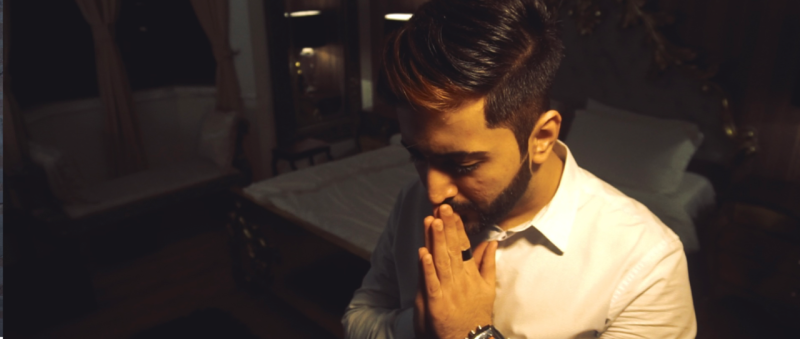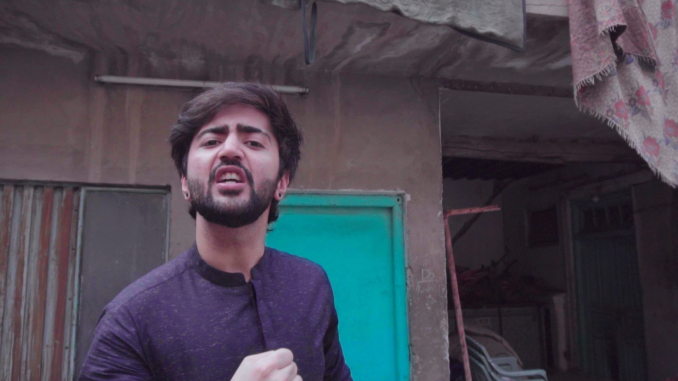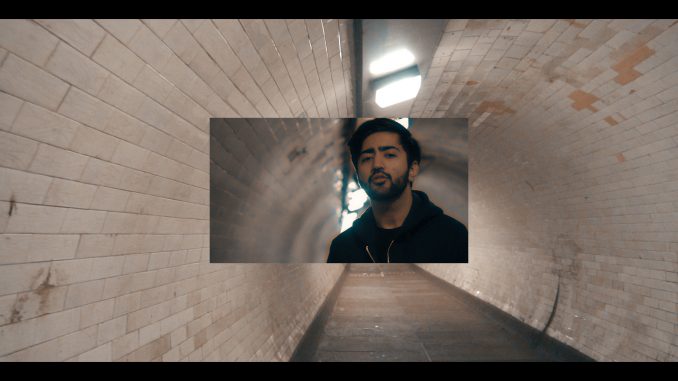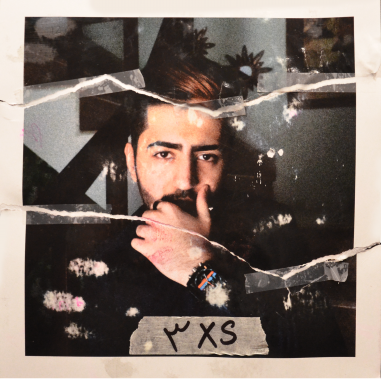Salar Shamas Talks to HELLO! About The Music Industry In Pakistan, The Global Pandemic And Why He Felt It Was Important To Start His Own Record Label Shamas-Kaari

I’m always a little taken aback by this question…because frankly speaking, I didn’t. But that doesn’t mean that it wasn’t all I’ve ever known. My father always took a strong interest in music, so we always had instruments lying around the house. If it weren’t for his financial circumstances, I do believe he would have pursued music as a career path as well. But here I am—an artist, a producer, a videographer and an entrepreneur. I run ‘Shamas-Kaari’: a record label I named after my dad, and started with the aim of providing an open, unrestricted platform to every local artist that is held back from their dreams and aspirations in any capacity whatsoever.

What sort of music do you like to listen to? Do you have any particular favourite bands or musicians that have influenced your work?
I listen to everything and anything. Urdu, English, Punjabi, Spanish, Portuguese, Arabic; the language doesn’t matter. I listen to all the underground musicians there are on SoundCloud too. That’s how I scout for new artists! My aim has always been to bring people together with music—and you can see that in my work. My discography reflects all of the Western 2000s rock bands I would listen to growing up, but is also deeply rooted in sounds inspired by Eastern artists like Sajjad Ali. I hope it always stays that way. Music itself is a language, and bringing forth an amalgamation of diverse cultural sounds is of deep interest to me. I’m also super into Latin pop these days!
What part of the process of making music do you find the most rewarding? Do you consider yourself a singer first or a songwriter or a music producer?
By far, the one thing I find most incredible about music is its ability to act as a medium. The way it allows you to literally teleport yourself into another person’s world—beyond time and beyond space—will always be mind-blowing to me. Sure, I can sit here and listen to Drake’s next chart-topping single any day. And of course, I might even find relief and enjoyment in it! But when I’m sitting in the studio and making music with say, 20-year-old Kashan (who grew up in Hunza Valley: the polar opposite of Lahore), it’s like I am suddenly able to walk in his shoes and catch a glimpse of what HIS world is like. If you think about it, it’s quite astounding—being able to see the world from someone else’s eyes in what, 3 minutes? It’s a privilege to me! It’s absolutely beautiful and I am beyond grateful that I get to do this as a full-time job.
And yes. Simply put, Salar Shamas is an artist and entrepreneur. My alter-egos—Walter Canton and Henry Dal—are a music producer and a videographer, respectively. You can connect the dots there if you wish to!

How would you describe the Pakistani music industry? Where is it headed?
Oh. My instinctual response to this was, “IT’S DAMNED!!”, but I guess the more appropriate way to put it would be that it’s…still in murky waters. The digital age has made music an extremely competitive sphere as is, but the nepotism that prevails in Pakistan straight up robs the underprivileged of any opportunity whatsoever. I’m a city kid living in a protected society in what is probably the most metropolitan part of the country—and it’s taken me YEARS to be able to see myself making a living out of this profession. Can you imagine what that would be like for someone from a place like Okara or Sahiwal? Oh, and don’t even get me started on piracy!

COVID-19 has changed the way people all over the world experience live music but in Pakistan even before the pandemic hit, concerts and live events have been on the decline. How can we change that?
Personally, I think this could have been somewhat of a good thing. While I love interacting with my audiences (it’s the best part of the job!), I do believe that the quarantine life has given way for online media consumption to be explored. More underprivileged underground artists have come to the forefront and have been getting more recognition than ever before.
In Pakistan, there still remains social stigma surrounding the concept of music. This comes with a plethora of concerns, including that of safety. I believe starting conversations around pertinent issues as such can really broaden the space for artists to connect more with their audiences and see an increase in the frequency of these events.
This is a question that I’m sure you’re asked often: is being a musician a viable career choice in Pakistan? How would you advise young people to go about making a career in music?
Yes, I get told it’s not a viable career choice quite often, actually. The problems in Pakistan aren’t just limited to the aforementioned issues surrounding piracy and nepotism. It is also the notion that people find this to be a ‘disgraceful’ concept that is looked upon with shame. That is one of the misconceptions that Shamas-Kaari seeks to diminish, by getting the sound of every household, every culture, and every local language out there. Music never divides—it unites.
I would advise young people to always remember that. Your craft and expression can be life-changing for someone across the world. Stick to your passion. Drown out the negativity with your sound (pun intended). Know the business, do your research, be safe, and most importantly, be yourself.
You have your own label Shamas Kaari. Was it a lack of record labels in Pakistan that made you decide to start your own? Do you have any other musicians associated with your label?
Pakistan does lack record labels, but it’s not that there aren’t any here. The reason I started Shamas-Kaari was solely to give underprivileged artists a platform where they could release their music without any financial burden. You won’t find that anywhere else. If you walk into any label or studio here, they will demand hundreds and thousands of dollars to create a basic project. 99% of the Pakistani population can’t afford that. We can’t exactly showcase the ‘sound of Pakistan’ when most artists don’t even have their foot in the door—or more so, can’t even see the door. The talent you find here locally is MAD, and is the most integral component of our nation’s sonic fabric. Through Shamas-Kaari, I’ve met the greatest artists who tell the most incredible stories through their music. I continue to do this because these people need Shamas-Kaari more than I do myself, and I’ll always love connecting with them.
There are currently 10 artists officially signed with Shamas-Kaari. The youngest is 14-years old and the oldest is 34. We’re an extremely diverse set of people, with backgrounds from all across the world.
Do you feel that the internet has changed the way that music has made? It seems that the internet has made it a lot easier for people to put their work out there so where does that leave the record labels and music producers?
I feel that this ties into what I said in my answer regarding COVID-19. It definitely is more competitive now, but it also allows us access to more talent and diversity, and broadens any confinements set on the art itself.
And finally, what do you see yourself doing in the next five years?
Wow, that’s a loaded question. I guess I will continue to write about my experiences in music and keep facilitating others who wish to do the same. As Shamas-Kaari’s founder, I do hope we are able to scout artists not just from Pakistan, but from all over the world. Though my main aim is to showcase the sound of Pakistan and get it out into the world to a larger audience (and to break cultural stereotypes), I eventually dream of starting a chain of projects that becomes a safe haven for musicians and artists alike; a place where they can work freely and produce their content without constraints or barriers. Shamas-Kaari will always strive to promote freedom of art and speech, and I think we’re off to a great start.
